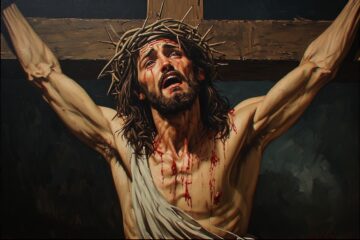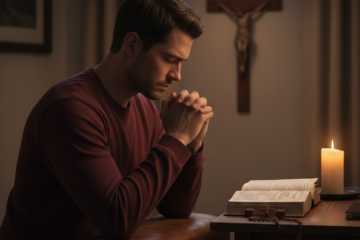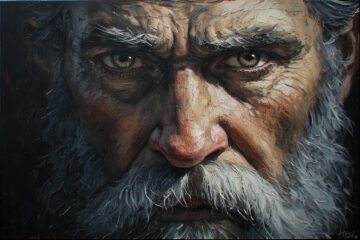Or how I learned to embrace wholeheartedly the will of God through Mary’s yes.
Human life finds its deepest meaning when understood within the grand narrative of God’s plan — what theologian Hans Urs von Balthasar called the “theo-drama.”
A personal note: If you know me at all, you’ll know that I have for the past 10 years or so been firmly rooted in the Reformed theological camp, often casting a scornful or distrustful glance across at Rome however, I am obliged to say that there has been, for the past 6 months a profound shaking and reshaping of my understanding of the “either or” of Calvinism v Arminianism founded in my study particularly of the Annunciation and this is a journey that continues as I write. It is uncomfortable for me as the seemingly simple act of contrition and acquiescence by Mary has, now that I dig deeper, created a profound schism in my once solid position. It has opened up a deeper exploration of the role of the sovereignty of God insofar as the individual goes but as I say, this is an ongoing journey for me.

But to my point now which has grown out of my reading. There has been since the beginning of time a divine drama that is the story of creation, redemption, and sanctification, where God is the author and we are invited participants. Our true vocation is not to write our own script and measure it against the world, but to discern and embrace the role God has entrusted to us because of course when we subordinate our lives to His will, we discover a purpose far greater than our fleeting desires, aligning ourselves with the eternal love and wisdom of the Creator.
Too often, we invert this order, placing the “ego-drama” of our personal wants and ambitions above the theo-drama of God’s design. Our life too easily becomes filled with the “I want”, the “I feel” or the ”I desire” often materialistic in nature. This disordered attachment to self leads of course ultimately to frustration and emptiness, for we were made for communion with God, not self-centred fulfilment.

As St. Augustine famously prayed, “Our hearts are restless until they rest in You.” The pursuit of worldly success, pleasure, or control can never truly satisfy the human soul, which yearns for the infinite — the very God who fashioned it. Only by surrendering to His will do we find true peace.
The path to harmonising our lives with the theo-drama requires humility, prayer, and discernment. The saints exemplify this surrender, allowing grace to transform their desires so that, like Mary, they could say, “Let it be done to me according to your word” (Lk 1:38). This does not mean suppressing our humanity but elevating it — allowing God to purify and direct our passions toward their proper end. In the sacraments, especially the Eucharist, we receive the strength to die to self and live for Christ, who alone reveals the full meaning of our existence.
Ultimately, the Christian life is a call to step out of the narrow theatre of self and into the vast, glorious drama of salvation history. When we relinquish the illusion of control and trust in divine providence, we become true protagonists in God’s story — not as the attempted authors of our own destiny, but as beloved children cooperating with grace. As Jesus taught, “Whoever loses his life for my sake will find it” (Mt 16:25).
May I have the courage to take my God-given place in the theo-drama, where joy, freedom, and eternal fulfilment await. It’s not easy but, non-one said it would be.
I know I am going to catch flak for this, and for my shifting thoughts but to invoke (ironically) Martin Luther at the Diet of Worms in April 1521: “Here I stand, I cannot do otherwise.”.
Shaun


